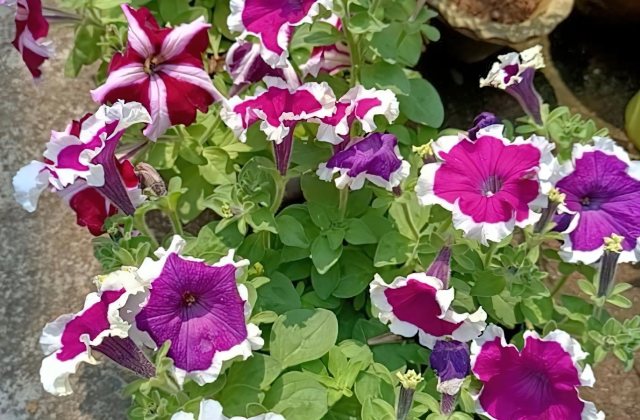What Type Of Soil Is Best For Growing Flowers?

A question I get asked a lot from gardeners is what type of soil is best for growing flowers. They all have their own theory about what type of soil is best for growing flowers. But, let’s be clear. There are many types of soils that work well for different flower garden types. So, to answer your question, “What type of soil is best for growing flowers,” you just need to find the type of soil that fits your specific flower garden style and your specific climate.
So, let’s start with a little background on the different types of soils. Most flower gardens start with a light sand/potting mix and add one to two pounds of organic matter per 10-inch pot. Then, as the garden grows, they move to a medium sand/potting mix and add one to two pounds of organic matter per square foot. The final step is to finish with a full pot to ensure the soil is well-drained and has adequate drainage.
So, which type is right for you? Well, it depends on the climate where you live. If you live in a warm and sunny climate, you want to use a light clay soil, one that drains easily and has good water retention capabilities. Clay soils are extremely acidic when dry. However, if you have heavy clay, it is also very porous and can absorb a great deal of moisture, so it may be a good idea to keep a few pots on the patio or side of your house where they will receive some moderate amount of water every week or two.
On the flip side, if you live in a cold and wintry climate, a hard, clay soil is exactly what you need. These types of soils tend to be very firmer and hold moisture more efficiently than most any other type of soil. When selecting this type of flower garden soil, one thing to consider is what type of plant that you are trying to grow. Some species of plants are better grown in harder soils, while others can tolerate a less-than-ideal soil type. Also, certain types of flower-garden plants, such as perennials, can thrive in any type of soil condition.
When working with your local nursery, ask what type of soil would be best for what you hope to grow. Perennials need a soil with a lower level of clay, as this type of soil allows roots to stay well below the surface. These plants can also handle a bit of shade as well, and there will be plenty of room for them to expand. However, clay tends to restrict expansion, and some perennials, such as some types of shrubs, can actually do better in a slightly looser soil structure. Flower gardens can also be a challenge in a loamy soil structure, as any weeds can easily sprout through the cracks in the foundation. Soil that has been tightly packed with organic matter will prevent weed growth, but it will also help to keep pests out.
For the flower garden itself, you have to pick the right kind of soil. Loose organic matter will retain moisture, which is a good thing if you are planning to grow a variety of plants. Clay tends to retain more water, so if you are looking to plant perennials or plan to use them for a long time, clay would be an ideal soil type for them. If you are looking to use a soil with a lower level of clay, you might consider a medium clay soil, which contains a medium amount of clay and medium to low moisture. This would be perfect for a flower garden and will allow the plant plenty of room to grow.
The key to getting a proper type of soil may take some research, but the right type can result in beautiful flower gardens. Soil types vary because different types of plants need different things in order to grow. For example, if you are looking to grow a flower garden with a small bed or small plot of land, you should look for a loamy soil with a light to medium acid count. This would be in the range of two to three percent. Loamy soil with a higher acid count will help to preserve moisture in the air, which is a good thing if you plan on planting anything that needs a high amount of moisture.
Once you have found the proper combination, the type of soil you are using will be completely irrelevant as long as you are keeping your plants healthy. Healthy plants will always taste better than unhealthy ones and will provide you with years of enjoyment. Your flower garden will not only be unique, but you will have created something that you are proud to look at. It will be one of the most well-loved gardens in your neighborhood.